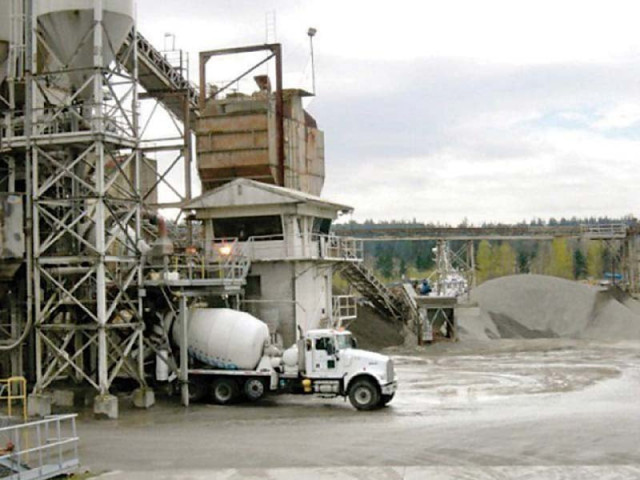CNIC condition causes decline in cement sales
Sales plunge because majority of cement dealers are unregistered

Overall, the economic slowdown, reflected in the nine-year low economic growth rate of 3.3% in FY19, has caused a sharp fall in cement demand. PHOTO: FILE
“Owing to the CNIC condition, cement sales have plunged almost 60-70% because majority of the cement dealers are unregistered,” said Sherman Securities’ cement sector analyst Saqib Hussain. “Cement demand in Pakistan, which stood at 150,000 tons per day earlier, has now dropped to 40,000 to 50,000 tons.”
The analyst added that 60-70% of cement sales in Pakistan were made by unregistered dealers, who were not willing to abide by the new rule of the Federal Board of Revenue (FBR).
The cement market of the country is already witnessing a price war after a cartel of companies broke up.
Apart from this, he added, rising inflation and depreciation of the rupee against the US dollar coupled with multiple hikes in interest rate hit the cement sector hard and enhanced its cost of production manifold, said Hussain.
“The cartel was broken when new capacity expansions started about two years ago,” said the analyst. “The sector’s production capacity has gone up by 7.5-8 million tons in the past two years.”
According to the All Pakistan Cement Manufacturers Association (Apcma), the country has the potential to produce 57 million tons of cement per year.
“With the inception of new plants, every company determines its own prices, hence, there is a lack of consensus on pricing,” said JS Research Corporate Head Atif Zafar.
Prices in the southern region has dropped and are in the range of Rs650 to Rs700 per 50kg bag while in the north, cement is being sold between Rs500 and Rs550 per bag.
Recently, Power Cement closed its old plant, which had production capacity of 3,150 tons per day.
“The plant was old and timeworn. Such plants are no longer efficient in terms of cost and tax credit,” said Zafar. “When demand is not enough, the companies decide not to continue operating outdated plants.”
The government has given tax benefits on the introduction of new technology in cement plants, he added.
“At present, the interest rate in Pakistan is so high that no one is considering starting a new business,” Zafar said.
Overall, the economic slowdown, reflected in a nine-year low economic growth rate of 3.3% in FY19, has caused a sharp fall in cement demand.
On the other hand, the government also slashed Public Sector Development Programme (PSDP) spending.
In the southern region, cement demand mainly comes from government-funded projects, which have reduced in number due to the austerity measures taken by Prime Minister Imran Khan.
“In the north, demand stems from the private sector, which is now reluctant to embark on any new venture as the government has started questioning sources of income,” Zafar said.
“Therefore, in terms of volume, sales are down and prices have also fallen due to a lack of consensus within the industry over pricing,” said the analyst.
Published in The Express Tribune, August 18th, 2019.
Like Business on Facebook, follow @TribuneBiz on Twitter to stay informed and join in the conversation.











1724319076-0/Untitled-design-(5)1724319076-0-208x130.webp)






COMMENTS
Comments are moderated and generally will be posted if they are on-topic and not abusive.
For more information, please see our Comments FAQ